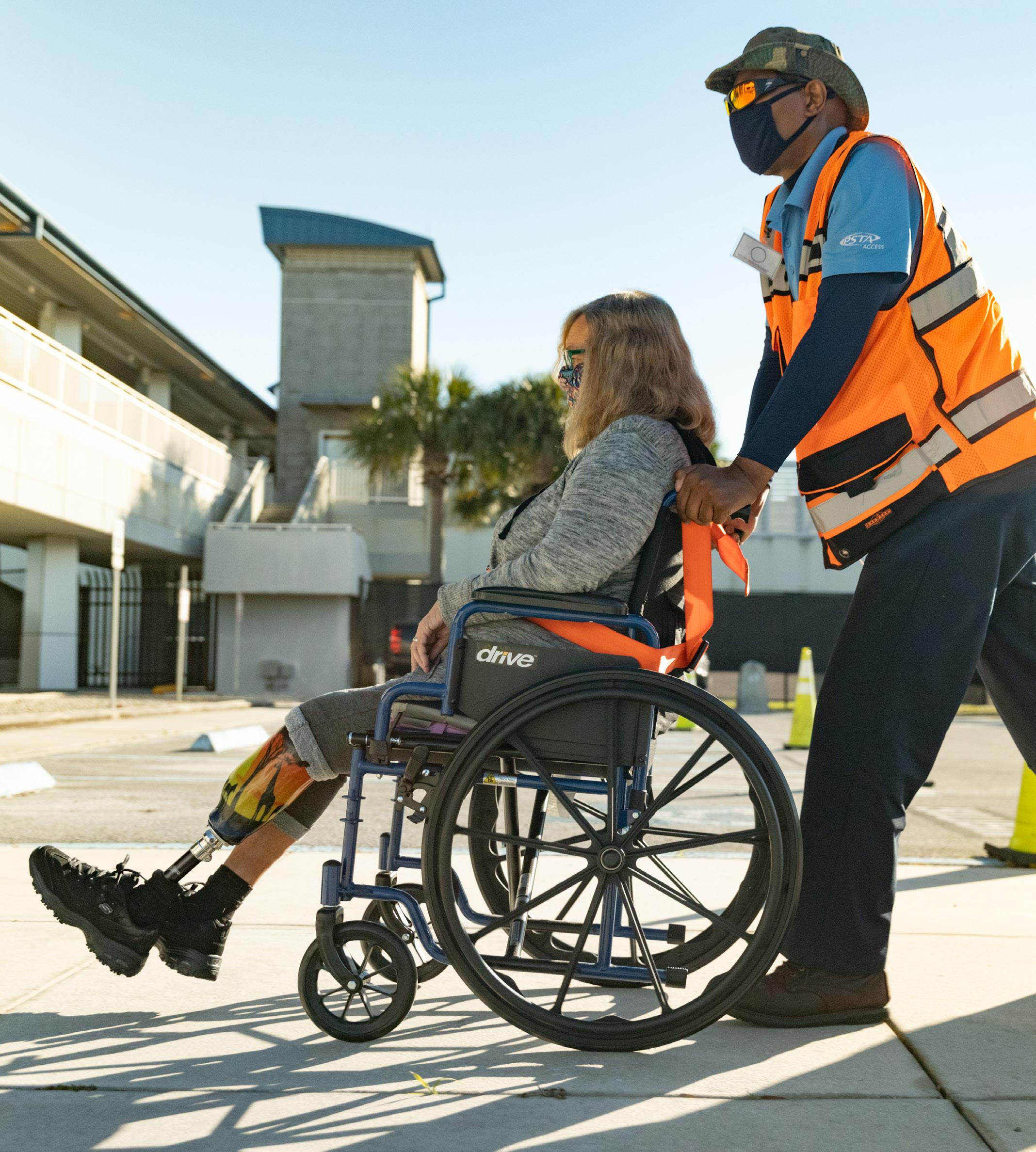
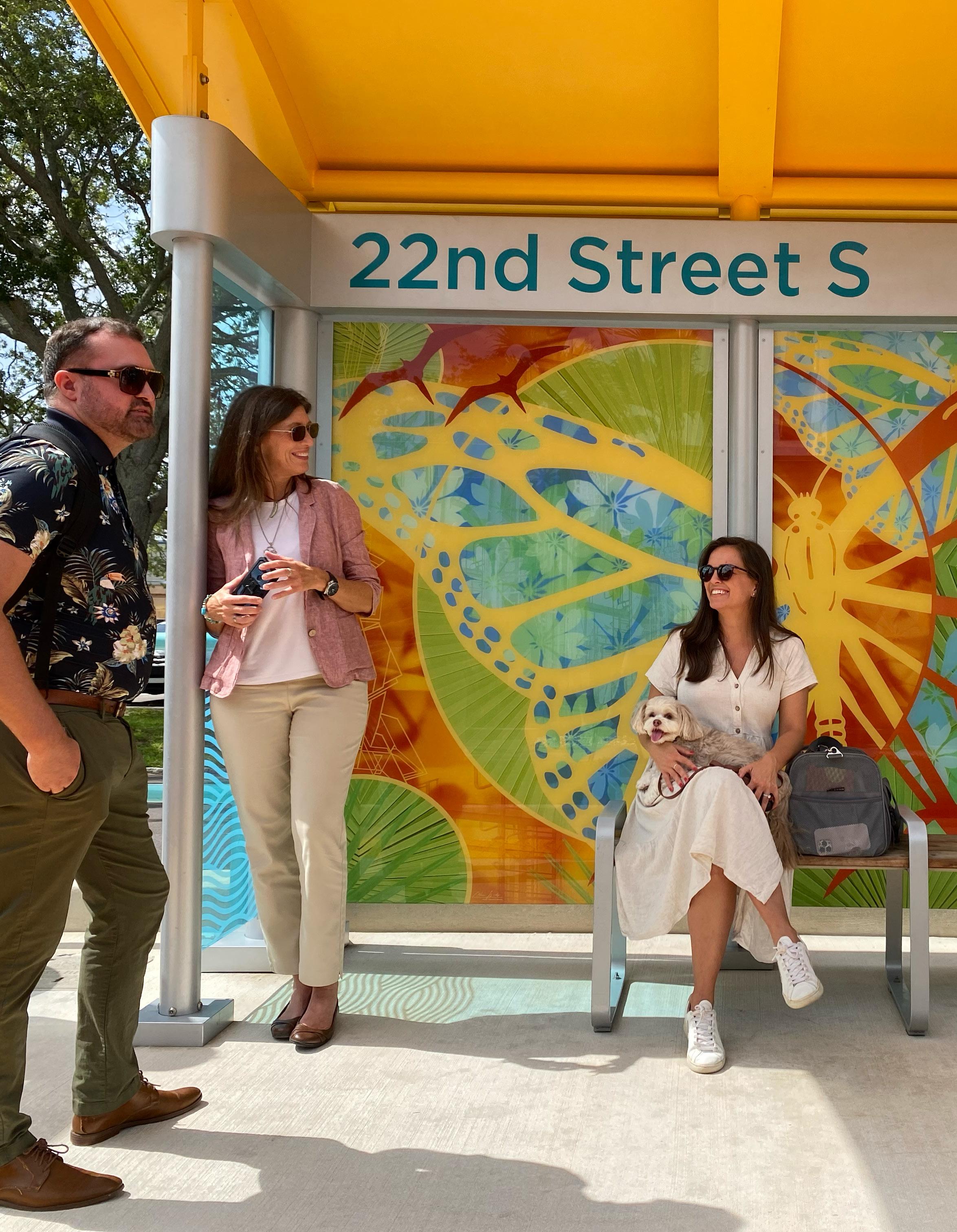
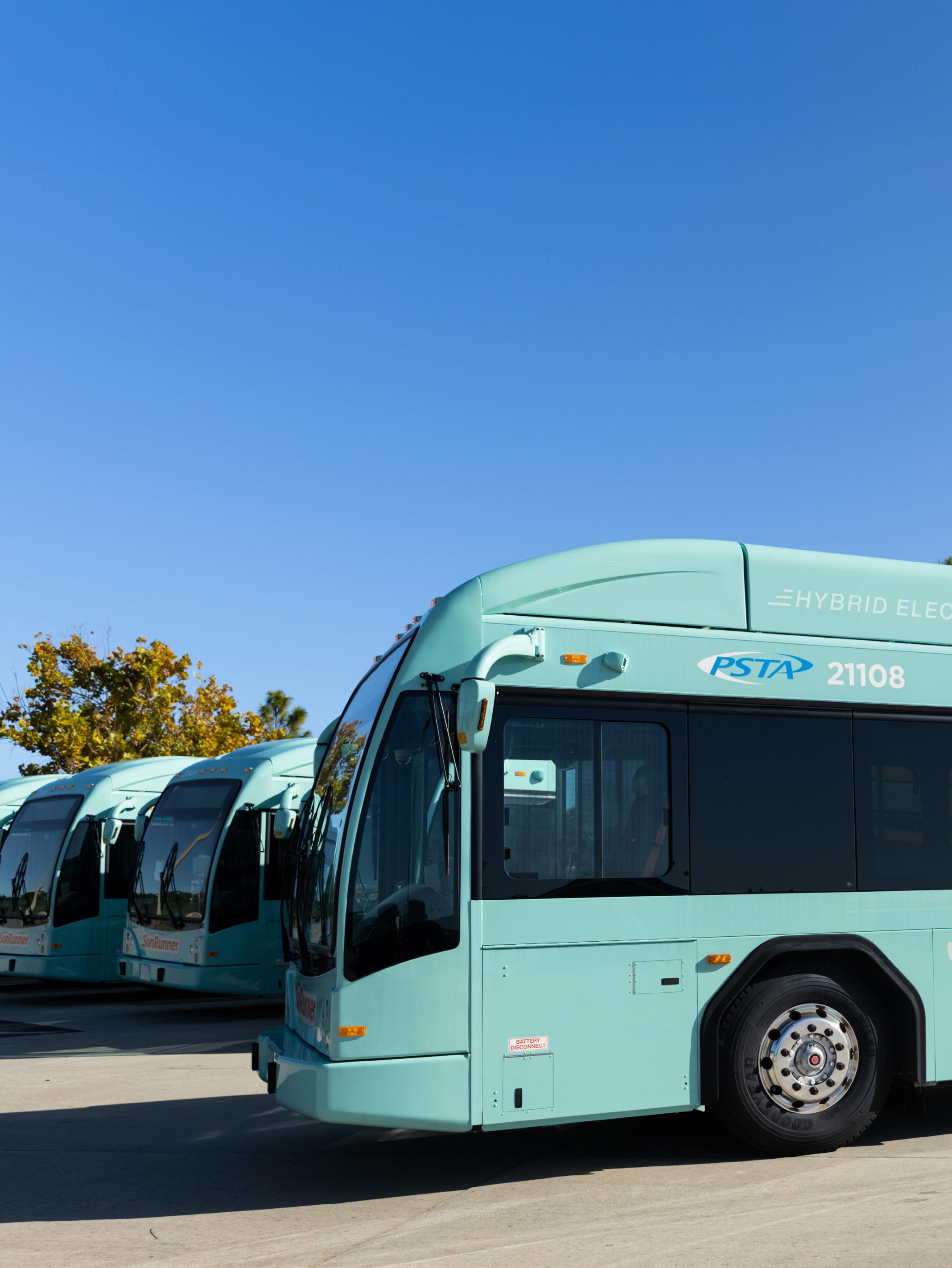




Brad Miller, CEO of the Pinellas Suncoast Transit Authority, shares insights into embracing technology, transformative solutions, and key partnerships that enhance accessibility while improving services for all passengers
The scenic Pinellas County, nestled along Florida’s picturesque west coast and a key part of the vibrant Tampa Bay area, offers a harmonious mix of urban energy and suburban serenity, featuring lively cities.
The region’s thriving economy is bolstered by a variety of industries, with tourism playing a significant role. At the same time, Pinellas Suncoast Transit Authority’s (PSTA) efforts to improve public transportation are essential in enhancing connectivity and accessibility among communities.
PSTA provides commuter services for a sizeable area, including St. Petersburg, Florida’s fifth-largest city, known for its historical and
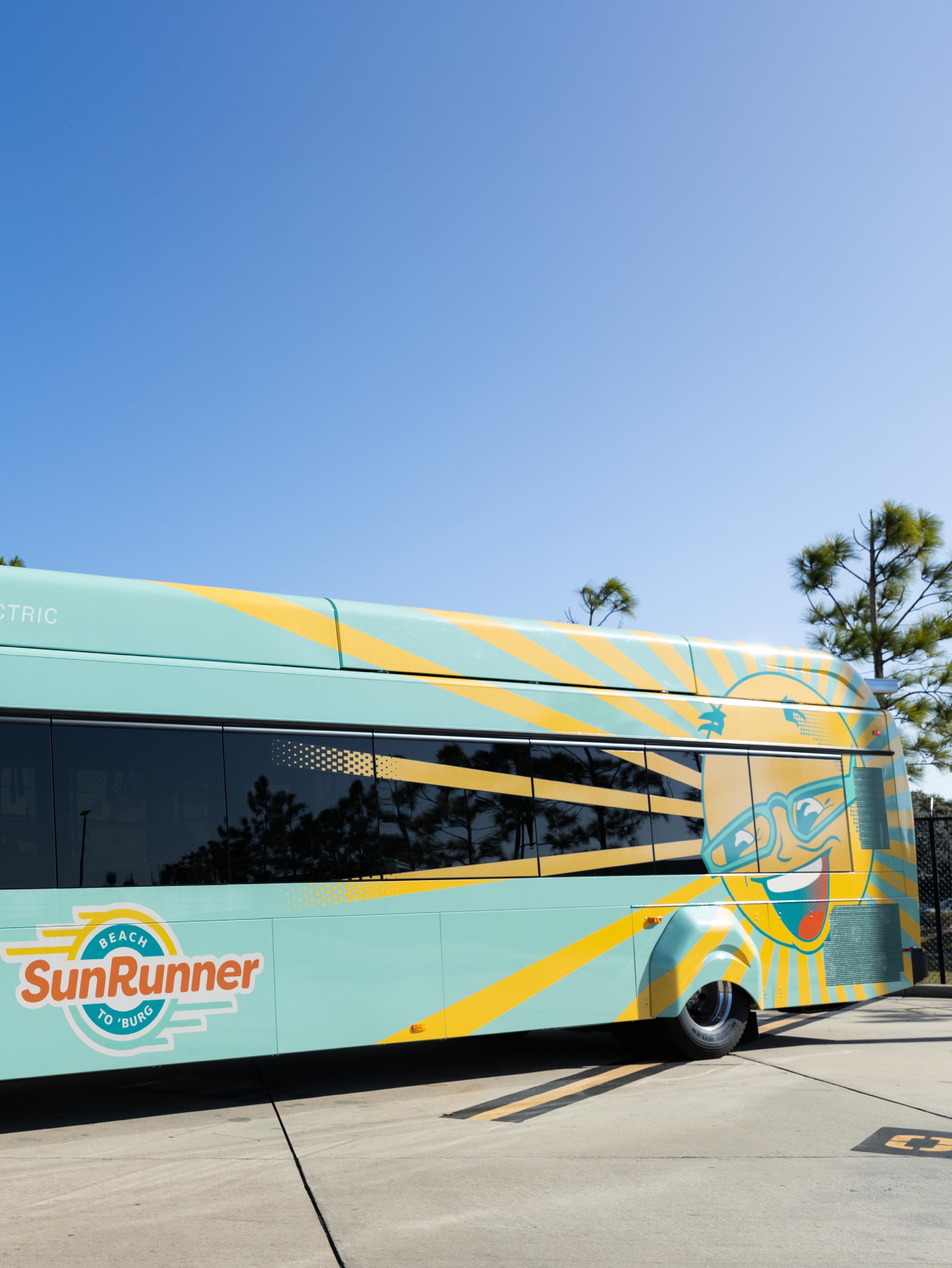
cultural significance. The area also encompasses Clearwater, which boasts award-winning, pristine white sand beaches and is frequently recognized as one of the state’s most beautiful and popular beach destinations.
Operating within these attractive destinations and beyond, PSTA improves accessibility for both residents and tourists, facilitating their daily travel needs. With an extensive network of routes, it is pivotal in meeting the transportation requirements of the communities it serves, benefiting both locals and visitors.
“We are committed to safely connecting people to places while
strengthening the community through innovation and meaningful partnerships,” introduces CEO, Brad Miller, acknowledging PSTA’s impact in aiding the region’s success.
Fueled by a distinct mission, the authority strives to be a catalyst for regional growth and connectivity through innovative strategies and dedicated initiatives, fostering economic development.
“The company is proud of its track record of innovation in the public transportation sector. With needs and travel patterns constantly evolving, it’s absolutely essential for us to remain plugged in to technology changes and passenger feedback,” he adds.
PSTA offers a wide range of services, including 46 bus routes with two express routes to Tampa and Hillsborough County, the SunRunner bus rapid transit, and the Clearwater Ferry, while operating 206 vehicles serving over 4,400 bus stops.
In addition, it has four customer service centers and answers more than 204,000 calls annually. It also provides over 159,000 Americans with Disabilities Act (ADA) paratransit and 269,000 bike-on-bus trips annually.
Overall, PSTA delivers 10.4 million rides annually, with an average weekday ridership of over 33,000, covering 9.8 million service miles and operating for more than 705,000 service hours. The agency also offers its Direct Connect service at 26 locations to link transit stops with final destinations.
PSTA proudly became the first public transportation agency to partner with Uber and Lyft in 2016, first for the Direct Connect first-mile last-mile program. Direct Connect offers discounts on Uber and Lyft to facilitate trips to and from designated bus stops, enhancing both first and last-mile connections.
In 2018, the partnership expanded to the innovative Mobility-on-Demand (MOD) paratransit program. MOD complements traditional paratransit with subsidized rides that can be hailed without scheduling, and this popular program has just celebrated one million rides.
Additionally, the partnership includes the Transportation Disadvantaged Late Shift program assists low-income third-shift workers
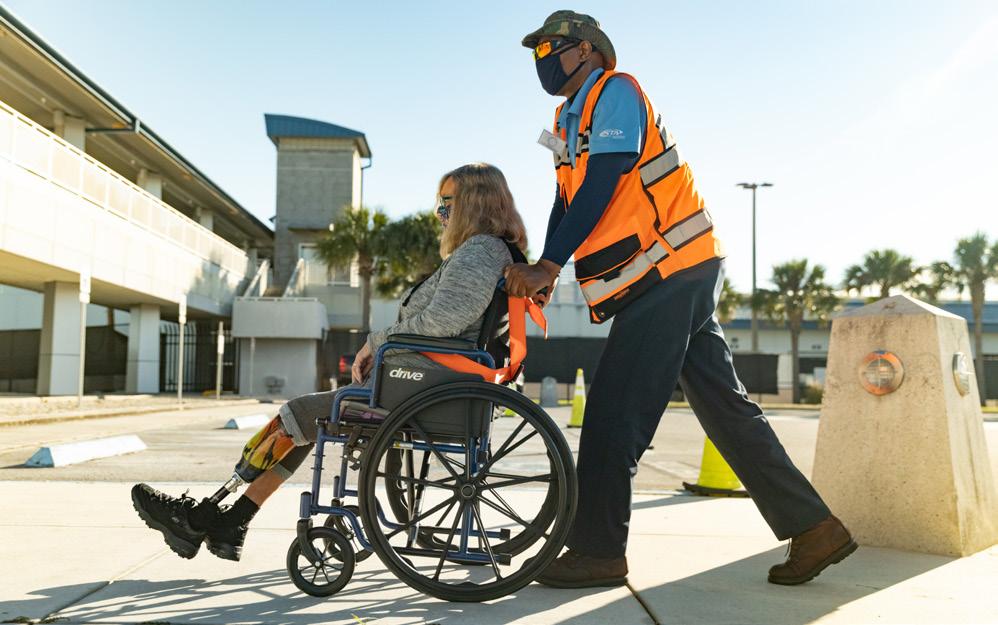
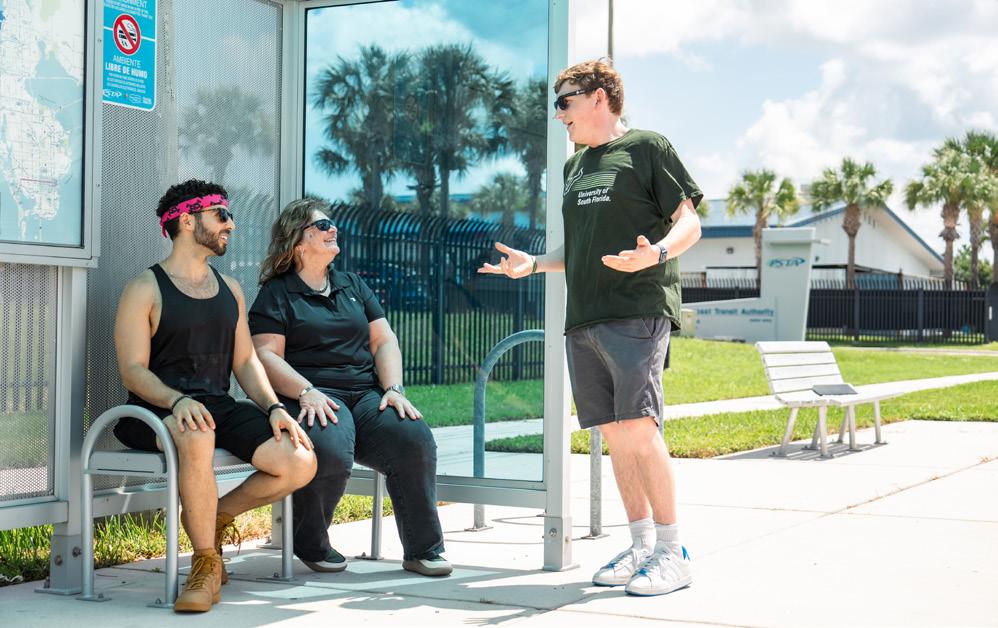
with rides to and from work when buses are not operating.
This partnership isn’t the only one that helps PSTA offer improved services—PSTA provides numerous services through public-private partnerships.
“TransDev is our contract partner for PSTA Access, our paratransit service for the entire county. Additionally, they are our operating partner for the new Grouper Airport Express, which offers on-demand service between St. Pete-Clearwater International Airport (PIE) and Clearwater Beach,” informs Miller.
“Our contract partners are truly an extension of our existing fleet – they help us expand our services while lowering operating costs. As a public agency, we always aim to be good stewards of taxpayer funds, and our operating partnerships with private
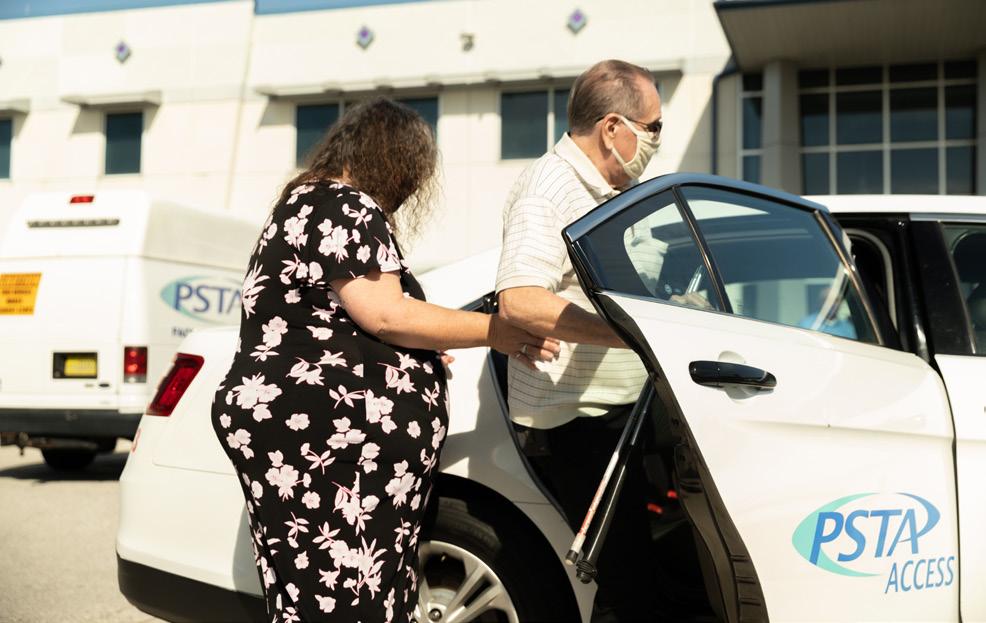
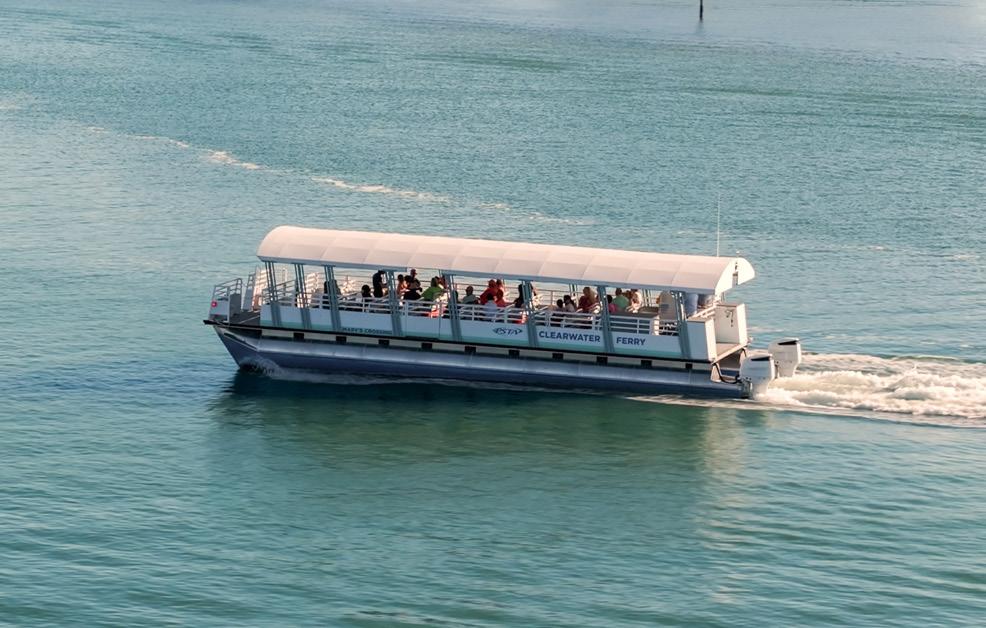
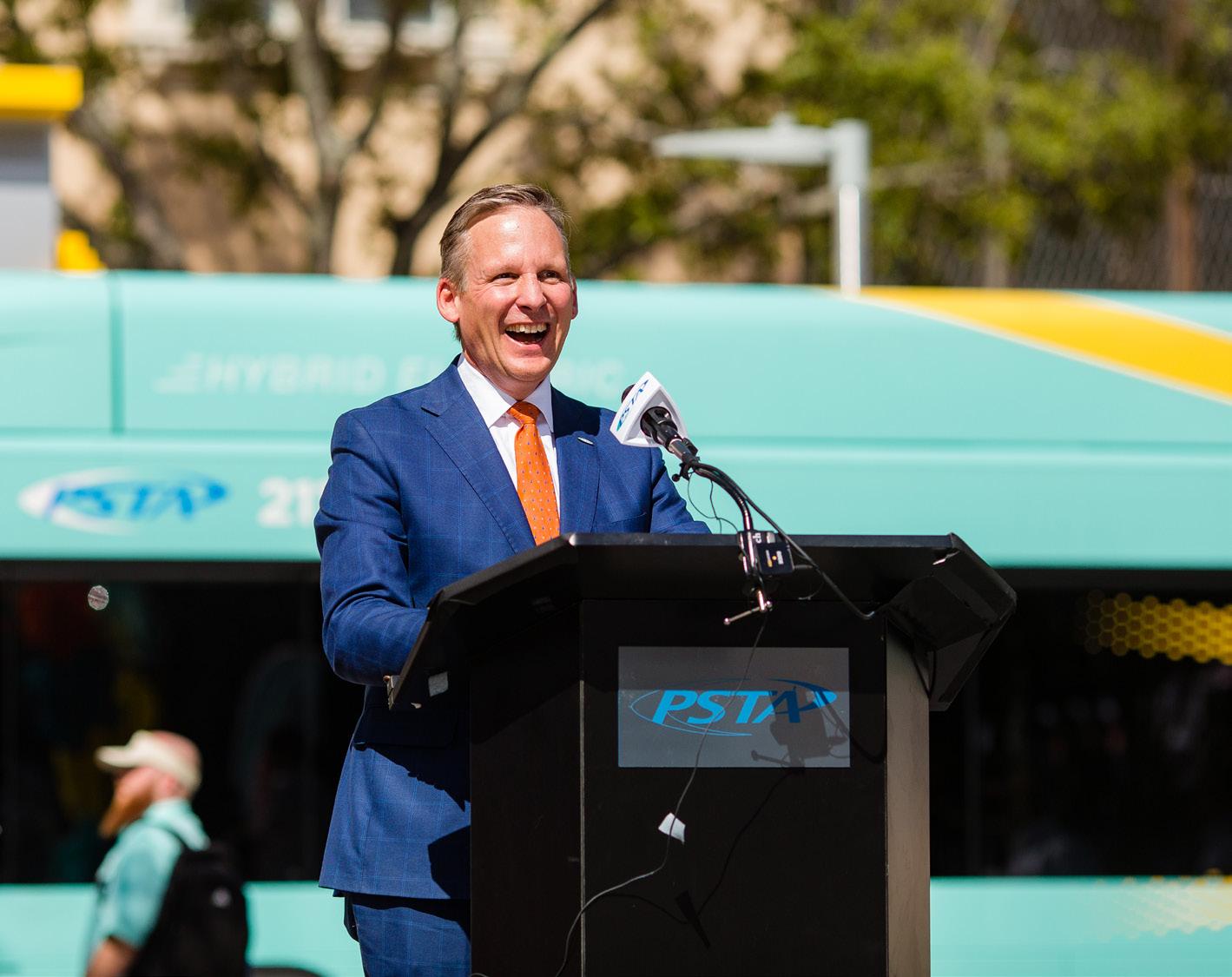
“WE ARE COMMITTED TO SAFELY CONNECTING PEOPLE TO PLACES WHILE STRENGTHENING THE COMMUNITY THROUGH INNOVATION AND MEANINGFUL PARTNERSHIPS”
– BRAD MILLER, CEO, PINELLAS SUNCOAST TRANSIT AUTHORITY
sector companies help us do just that.”
“The partnership allows us to serve our paratransit customers better, and their quick thinking helps us get pilot programs off the ground,” he continues.
Technology allows PSTA to better collect fares and supply riders with information for its standard fixed route bus service.
“Our buses all feature tap-to-pay
fares, letting riders use their credit card or phone,” Miller highlights.
“Many of our buses also have real-time information screens for passengers and onboard Wi-Fi, and our SunRunner line features the same digital data displays at every station.”
By keeping the wheels turning, PSTA’s maintenance department consistently wins awards and sets an example industry-wide. This includes its use of artificial intelligence (AI)powered predictive maintenance software to help reduce costs and better understand the fleet.
HOW DOES CENTRALIZED PROCUREMENT AFFECT SUPPLY CHAIN EFFICIENCY WHEN CONTRACTING SERVICES TO LOCAL OPERATORS, AND WHAT ROLE DO DIVERSE VENDOR RELATIONSHIPS PLAY IN IMPROVING SERVICE DELIVERY?
Brad Miller, CEO: “Having a centralized procurement department allows our partners to have one point of contact, which makes communication seamless and helps foster better business relationships with our national and local partners.
“Diversity is integral to PSTA’s procurement process, fostering opportunities for local businesses and positively impacting the economy. While bus manufacturers operate out of state, many parts suppliers are local, further supporting economic growth within the community.
“Through our collaboration with construction partners, we have found that active community engagement, responsiveness, and attentiveness to concerns enhance service delivery and foster trust in PSTA’s commitment to doing the right thing.”
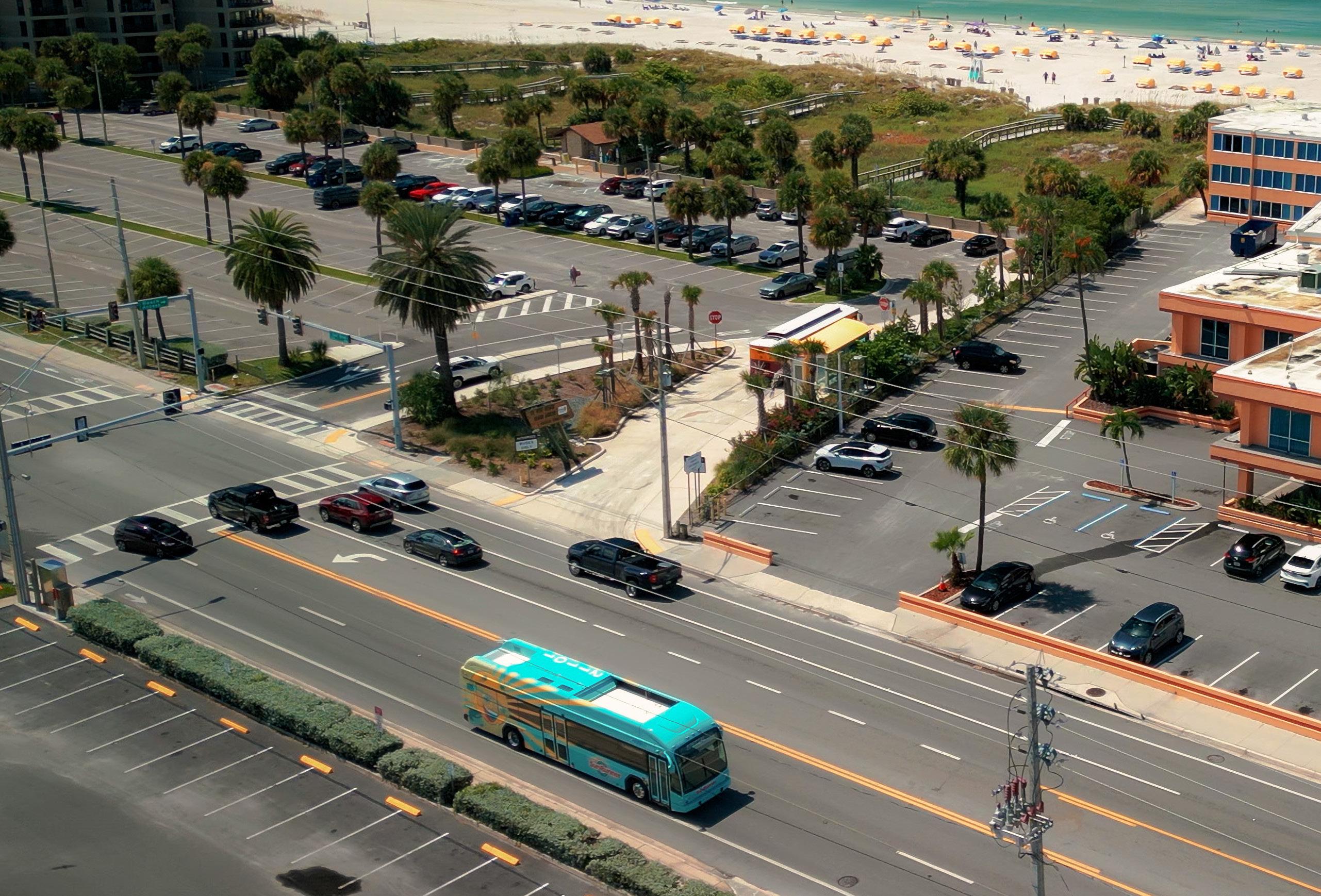
PSTA recently received a contribution from the Federal Transit Administration’s (FTA) Low or No Emission Grant Program to replace older diesel buses with new hybrid and electric vehicles (EVs). This will provide the community with more reliable rides and reduce maintenance and fuel costs.
One of the most significant projects currently underway at PSTA is the development of Clearwater Station, a new, state-of-the-art multimodal transit center (MTC) in Downtown Clearwater.
Clearwater Station is the result of a decade’s worth of work between PSTA, the City of Clearwater, Pinellas County, the Florida Department of Transportation (FDOT), and other community organizations, marking a transformative investment in the
region’s transportation infrastructure.
“The new facility will replace our outdated and overcapacity transit center built in the 1980s, which no longer meets accessibility standards and cannot accommodate modern buses.
“Located just 1,000 feet from the current site, the new Leadership in Energy and Environmental Design (LEED)-certified center will sit on approximately two acres of donated land near the Pinellas Trail, new City Hall, and other municipal buildings,” Miller elaborates.
Key features of Clearwater Station will include a facility twice the size of the existing terminal and connections to multimodal services like Uber, Lyft, bike and scooter share, and PSTA Access.
The MTC will also have eco-friendly features such as EV charging stations and solar panels, as well as covered bike racks.
Moreover, it will incorporate retail spaces, a coffee shop facing the Pinellas Trail, and useful amenities like real-time arrival and departure displays. Additionally, the area will be enriched by public art and intuitive wayfinding signs.
The project was awarded $20 million through the Rebuilding American Infrastructure with Sustainability and Equity (RAISE) grant – the first of its kind ever awarded in Pinellas County – with extra funding to come from the City of Clearwater, FDOT, Forward Pinellas, and PSTA itself.
Construction bids are currently open, with ground expected to be broken this fall and the grand opening targeted for 2026.
Once complete, the new MTC will serve more than 2,300 passengers daily, support access to thousands of jobs, and further position the authority as a leader in sustainable, accessible transit solutions.
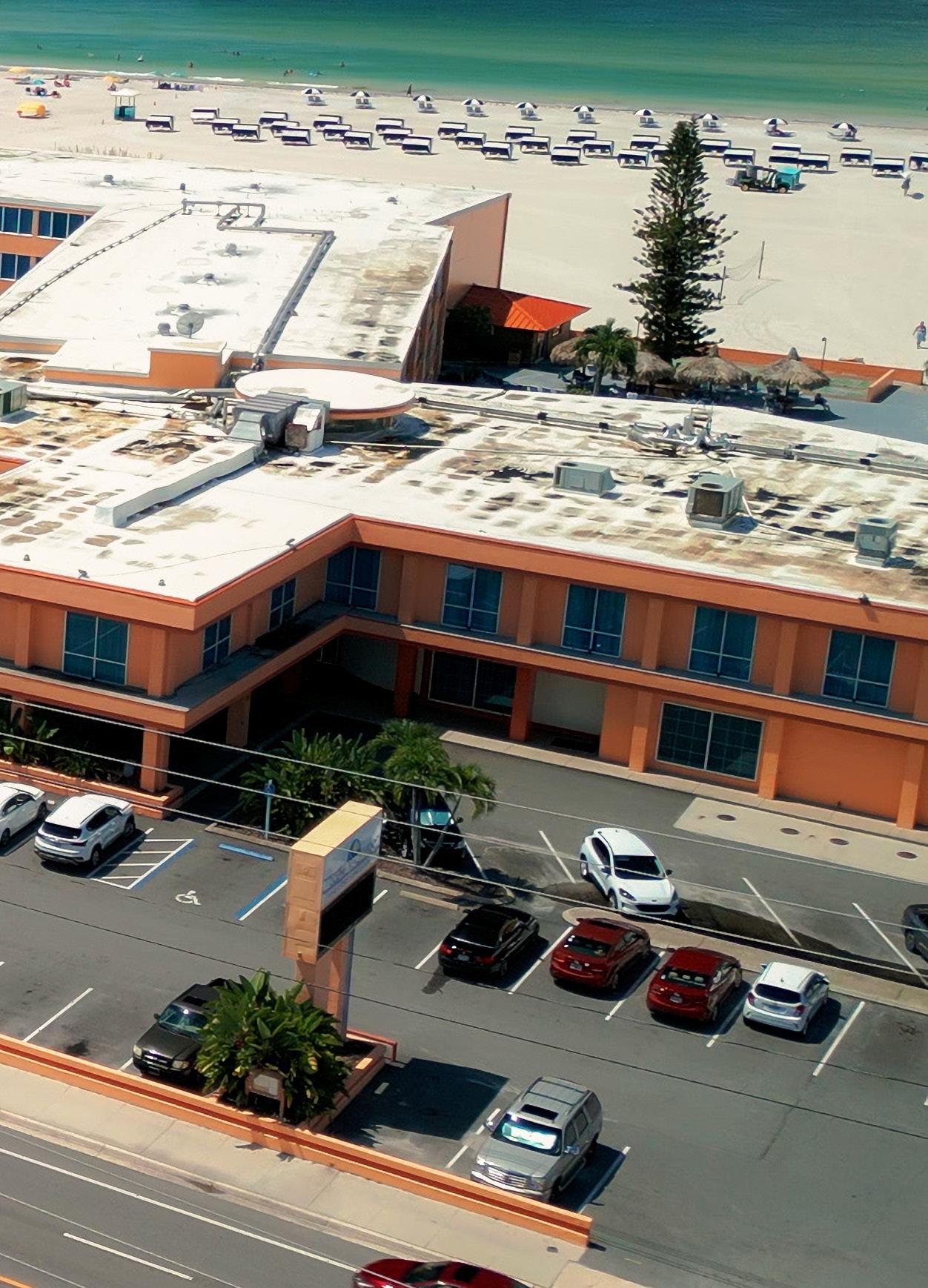


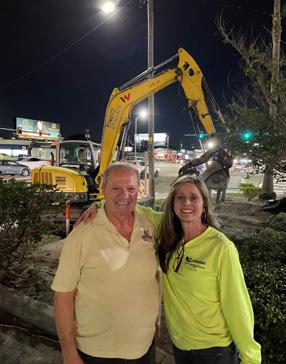

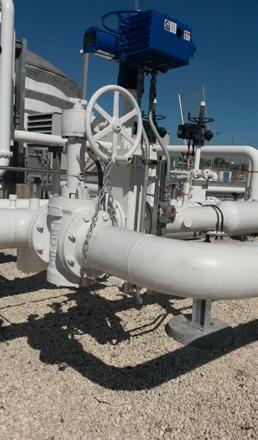
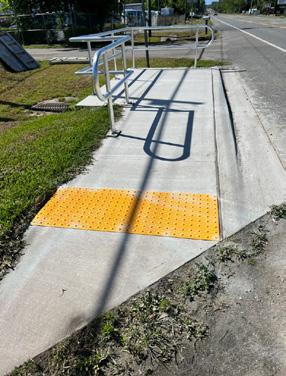
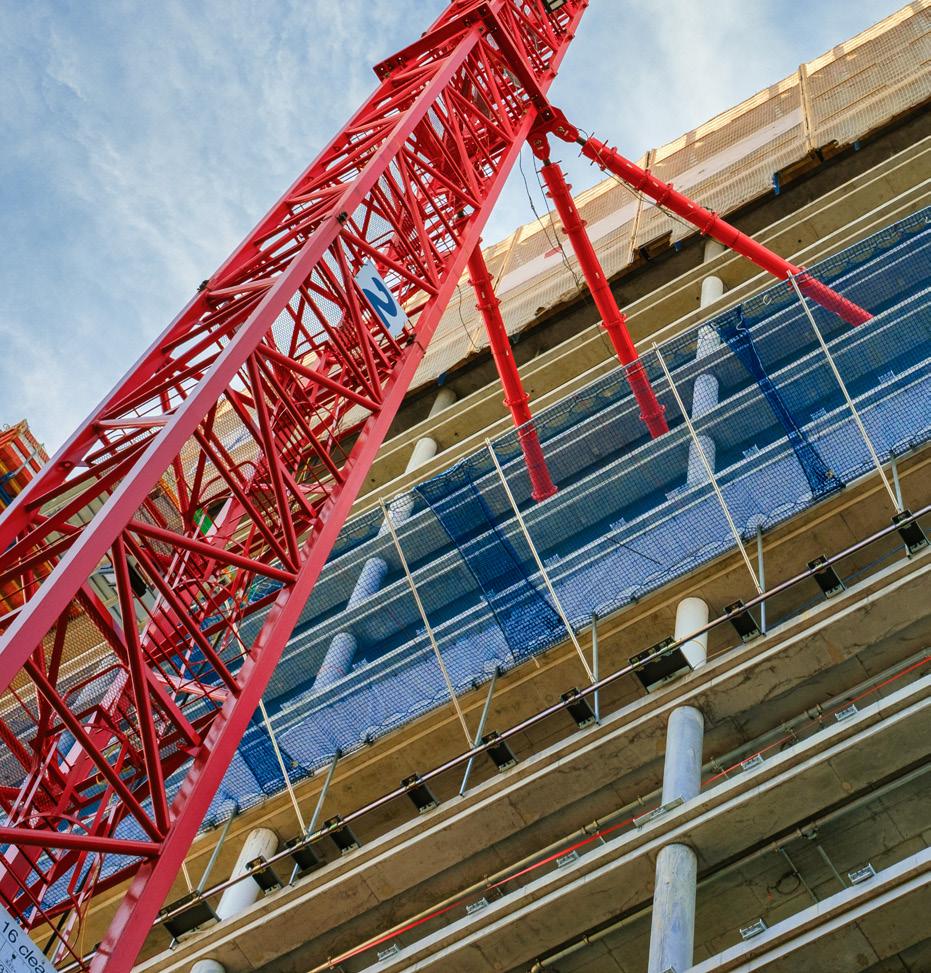
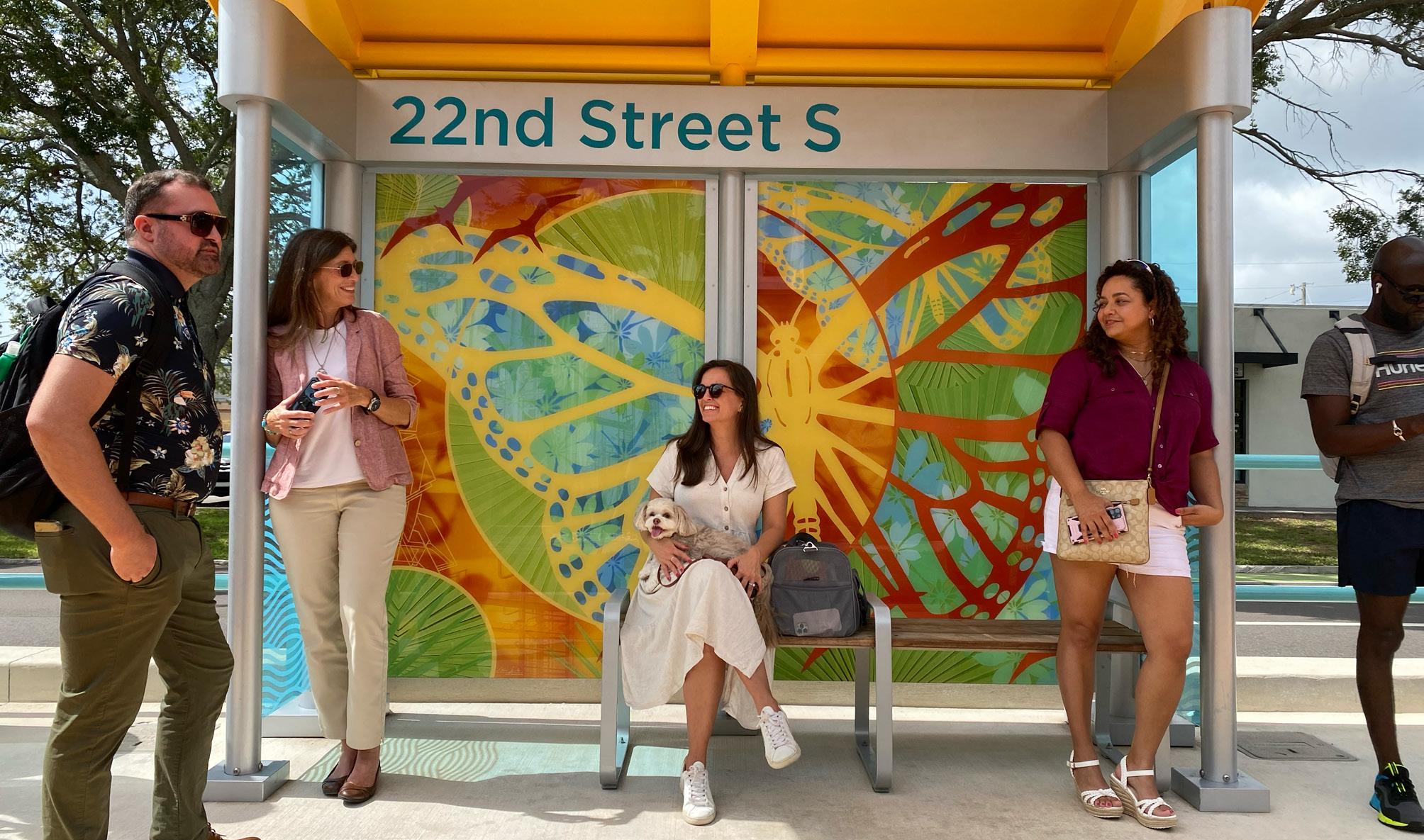

PSTA is dedicated to providing advanced mobility solutions for individuals with disabilities and retirees.
Through PSTA Access, the agency offers ADA-compliant door-to-door paratransit services for those unable to use regular bus routes. Drivers are specially trained to ensure a safe and supportive travel experience.
Furthermore, the MOD program also partners with providers like Uber and Lyft, enabling eligible riders to book unshared, curb-to-curb trips as needed.
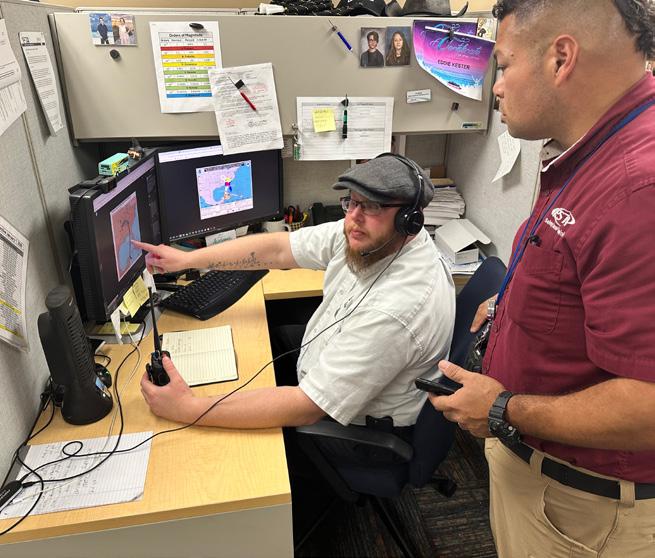
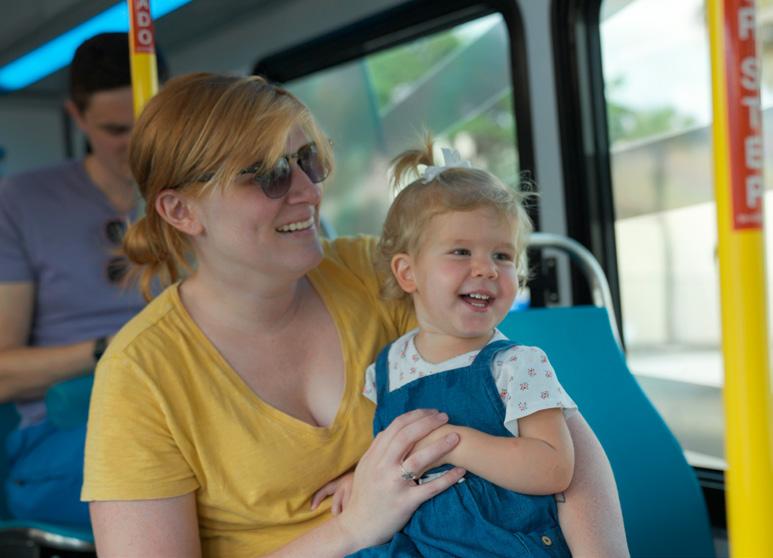
“AS A PUBLIC AGENCY, WE ALWAYS AIM TO BE GOOD STEWARDS OF TAXPAYER FUNDS, AND OUR OPERATING PARTNERSHIPS WITH PRIVATE SECTOR COMPANIES HELP US DO JUST THAT”
– BRAD MILLER, CEO, PINELLAS SUNCOAST TRANSIT AUTHORITY
“We have launched a Seniors and Disabled Discount Program that allows riders to register tap-enabled credit or debit cards for automatic fare discounts and daily fare capping, removing the need for ID,” Miller
outlines.
All PSTA buses feature accessibility options, including wheelchair ramps and stop announcements, and free travel training is offered to help new passengers. These initiatives ensure
older adults and individuals with disabilities can travel freely and affordably in Pinellas County.
To further enhance access for everyone, the authority has a productive few years ahead as it focuses on expanding and improving its services.
“Our top priorities for the coming year are the construction of Clearwater Station and the design of our new and improved Cross-Bay Ferry service. The invitation for bid for Clearwater Station construction was just issued in June 2025, and we anticipate award of a general contractor agreement toward the end of July.
“Groundbreaking will occur in the fall of 2025, with completion scheduled in 2027. The Cross-Bay Ferry request for proposal (RFP) will launch later this summer, with the award to be made in early fall, and we anticipate a new service starting in 2026,” Miller concludes ardently.
As PSTA continues to embrace innovation and foster partnerships, it remains dedicated to enhancing the quality of public transportation in Pinellas County.
With a strong focus on accessibility and sustainability, the authority is poised to drive positive change for both residents and visitors alike, paving the way for a more connected and vibrant community.
• CROSS-BAY FERRY – The new passenger ferry service between St. Petersburg and Tampa is expected to start in 2026, with PSTA nearing federal funding for high-speed vessels. They are waiting for FTA approval of a $4.86 million grant, initially awarded to Hillsborough Area Regional Transit (HART) Authority, to purchase ferry boats for permanent service.
The HART Board has approved transferring the grant to PSTA to support regional transportation improvements. Unlike past operations, it will own the vessels and hire a third-party operator to enhance reliability and reduce costs. An RFP for an operating partner is expected later this summer.
• CLEARWATER FERRY – PSTA and the Clearwater Ferry have expanded the service to connect Downtown Clearwater, Clearwater Beach, and soon, Dunedin. This eco-friendly transit option alleviates traffic, supports local businesses, and offers a unique travel experience across Pinellas County. Operating Thursday through Sunday, it provides a convenient alternative for commuters and tourists.
This expansion aids Clearwater’s recovery from Hurricanes Helene and Milton by reconnecting beach communities and boosting economic activity, supported by state grants and investments from PSTA, Clearwater, and Dunedin, emphasizing sustainable transportation and regional collaboration.
Tel: 727-540-1900
cserv@psta.net http://www.psta.net/
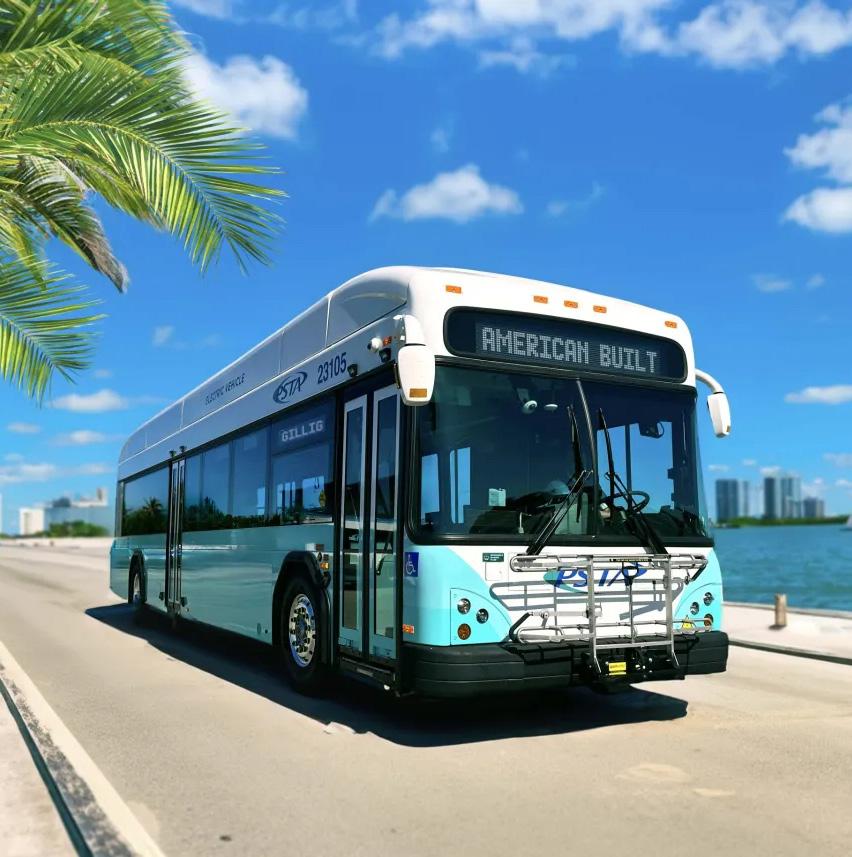
Tel: 727-540-1900
cserv@psta.net http://www.psta.net/
